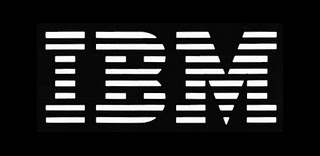– AMD, Dell EMC, Google, Hewlett Packard Enterprise, IBM, Mellanox Technologies, Micron, NVIDIA and Xilinx Launch OpenCAPI Consortium and Immediately Release New Specification Enabling Up to 10X Faster Server Performance
– OpenCAPI Products Expected in Second Half of 2017
SILICON VALLEY, CA – 14 Oct 2016: Technology leaders AMD, Dell EMC, Google, Hewlett Packard Enterprise, IBM (NYSE: IBM), Mellanox Technologies, Micron, NVIDIA and Xilinx today announced a new, open specification that can increase datacenter server performance by up to 10x, enabling corporate and cloud data centers to speed up big data, machine learning, analytics, and other emerging workloads. Servers and related products based on the new standard are expected in the second half of 2017.
The new standard, called OpenCAPI and released today by the newly formed OpenCAPI Consortium, provides an open, high-speed pathway for different types of technology – advanced memory, accelerators, networking and storage – to more tightly integrate their functions within servers. This data-centric approach to server design, which puts the compute power closer to the data, removes inefficiencies in traditional system architectures to help eliminate system bottlenecks and can significantly improve server performance.OpenCAPI sets a new standard for the industry, providing a high bandwidth, low latency open interface design specification built to minimize the complexity of high-performance accelerator design. Capable of 25Gbits per second data rate, OpenCAPI outperforms the current PCIe specification which offers a maximum data transfer rate of 16Gbits per second.
With its data-centric design and speed advantage, OpenCAPI addresses an immediate need from the global business community for greater levels of computing performance. Companies in finance, Internet services, retail, hospitality, medical, and automobile manufacturing are increasingly turning to data-intensive workloads such as machine learning, advanced analytics and other rapidly emerging technologies for competitive advantage. Through OpenCAPI, the technology industry is enabled to build datacenter solutions that are better equipped for the most demanding next generation workloads.
The Merits of an Open Approach
United by a belief that an open development approach can speed up innovation, the Members of the OpenCAPI Consortium are providing a path forward for companies to bring differentiated products to market faster. Many technology companies have developed innovative solutions that today’s datacenter technology cannot effectively leverage due to limited legacy interfaces. New technologies such as storage class memory and accelerators to support emerging workloads do not fit well on existing interfaces and a closed, proprietary approach does not allow for full industry participation nor innovation.
Through OpenCAPI, industry leaders are helping ensure there is freedom of action across the industry for technology companies to more closely work together and to fully integrate new innovation at the compute, storage and networking levels of a modern datacenter.
OpenCAPI Enabled Products
After an extensive period of collaboration leading up to the release of the OpenCAPI specification, several technology companies have plans to introduce and deploy OpenCAPI enabled products, including:
- IBM plans to introduce POWER9-based servers that leverage the OpenCAPI specification in the second half of 2017. Additionally, IBM will enable members of OpenPOWER Foundation to introduce OpenCAPI enabled products in the second half 2017.
- Google and Rackspace’s new server under development, codenamed Zaius and announced at the OpenPOWER Summit in San Jose, will leverage POWER9 processor technology and plans to provide the OpenCAPI interface in its design.
- Mellanox plans to enable the new specification capabilities in its future products.
- Xilinx plans to support OpenCAPI enabled FPGAs.
The OpenCAPI consortium plans to make the OpenCAPI specification fully available to the public at no charge before the end of the year. Interested parties will be able to register and download the specification directly online. Companies with plans to develop products based on the specification may do so by either joining the Consortium or obtaining a license from the Consortium. Design enablement services provided by the Consortium include reference designs, further documentation and access to future work groups. Membership is open, with further details available at www.opencapi.org.
Larger Industry Effort
The OpenCAPI Consortium reflects a broader industry trend recognizing the importance of open standards. This week OpenCAPI is the third technology organization, joining the CCIX and Gen-Zconsortiums, to make an announcement in support of new open standards to respond to the emerging needs of the datacenter. Backed by a total of more than 30 leading technology companies, the three organizations welcome each other’s announcements as part of a collaborative industry effort to create an open datacenter architecture for the future.
OpenCAPI’s Global Leadership
Support for OpenCAPI is rooted in a set of global technology leaders that represent a broad cross-section of the industry, setting the stage for widespread collaboration and rapid adoption around the new standard.
Supporting quotes from inaugural OpenCAPI members:
AMD
“AMD is supporting OpenCAPI to bring high-performance accelerators from the Radeon Technologies Group into the datacenter, consistent with our work to establish open standards for accelerators that work across multiple processor architectures and suppliers,” said Greg Stoner, AMD senior director, Radeon Open Compute. “We believe open standards are absolutely the right approach to drive further innovation and adoption of high-performance accelerators.”
Dell EMC
“In order to resolve problems customers face today and in the future we need an industry that collaborates on an open standards principle,” said John Roese, Executive Vice President and CTO, Dell EMC. “Efforts like OpenCAPI and Gen-Z are essential to enabling our customers to innovate and thrive in an ever-changing industry.”
“Google is committed to open standards and we are excited to contribute to the cross-industry use and development of OpenCAPI,” said Chris Johnson, Principal Engineer, Google. “OpenCAPI can advance the future of server design by enabling higher performance for data-intensive workloads and the emerging accelerator ecosystem.”
Hewlett Packard Enterprise
“Open standards are necessary to meet the demands of the modern data center,” said Mark Potter, senior vice president and chief technology officer, Enterprise Group, Hewlett Packard Enterprise. “HPE is committed to supporting open standards and working collaboratively with our partners in the OpenCAPI, and Gen-Z consortiums.”
IBM
“IBM first introduced CAPI technology to the industry in 2014 with our POWER8 processor and made it available to our OpenPOWER partners. Since then, the industry has embraced and validated its potential as a game-changing technology for the most important modern workloads including artificial intelligence, advanced data analytics and deep learning,” said Brad McCredie, IBM Fellow and Vice President of POWER Development. “As a result of this initial success, IBM has decided to double down on our commitment to open standards and enablement of industry innovation by opening up access to our CAPI technology to the entire industry. With the support of our OpenCAPI co-founders, we have created a new OpenCAPI specification that tremendously improves performance over our prior specification and IBM will be among the first to implement it with our POWER9 products expected in 2017.”
Mellanox Technologies
“Mellanox is delighted to be one of the founding members of the OpenCAPI consortium and help drive the creation of open standards to enhance the datacenter performance, and in particular the interconnect – CPU / memory / accelerator communications,” said Gilad Shainer, vice president of Marketing at Mellanox Technologies. “Open standards and the open collaborations between companies and organization is key to develop the needed technology for the next generation cloud, Web 2.0, high performance, machine learning, big data, storage and more infrastructures.”
Micron
“While memory has always been an essential building block for computing, it is quickly becoming the critical technology to unlocking next-generation performance.” said Tom Eby, vice president and GM of Micron’s compute and networking business. “Because open standards present the best opportunity for rapid innovation, the OpenCAPI, Gen-Z, and CCIX consortiums are an important step in ensuring that developing architectures can quickly adapt to capitalize on the dramatic benefits provided by new memory technologies.”
NVIDIA
“AI is changing the way datacenters and the servers that power them are being built,” said Ian Buck, vice president of Accelerated Computing, NVIDIA. “Defining the next-generation interconnect between storage, CPUs, GPUs, networking and accelerators will help achieve new levels of intelligence for the datacenter.”
Xilinx
“Xilinx is fully committed to bring high performance accelerators to market,” said Gaurav Singh, vice president of Architecture at Xilinx. “Today our All Programmable devices support CAPI on POWER8 platforms and are excited to join the OpenCAPI consortium to develop highly differentiated solutions with the POWER9 platforms.”
Support from industry organizations:
CCIX
“The CCIX group of companies believe in the need to foster innovation in the industry”, said Gaurav Singh, CCIX Chair. “We welcome the efforts of and look forward to collaborating with the Gen-Z and OpenCAPI consortiums which will further the development of key technologies that will define the datacenters of tomorrow.”
Gen-Z Consortium
“The Gen-Z Consortium is committed to establishing an ecosystem where members, the broader industry, and customers work together to deliver robust, high-quality specifications that enable new datacenter architectures,” said Kurtis Bowman, Gen-Z Consortium president. “The formation of these three new consortia (CCIX, OpenCAPI, and Gen-Z), backed by more than 30 industry-leading global companies, supports the premise that the datacenter of the future will require open standards. We look forward to collaborating with CCIX and OpenCAPI as this new ecosystem takes shape.”
About OpenCAPI
The OpenCAPI Consortium is an open forum to manage the OpenCAPI specification and ecosystem. OpenCAPI is a not-for-profit organization formed in October 2016 by OpenCAPI Board Members AMD, Google, IBM, Mellanox Technologies and Micron to create an open coherent high performance bus interface based on a new bus standard called Open Coherent Accelerator Processor Interface (OpenCAPI) and grow the ecosystem that utilizes this interface. This initiative is being driven by the emerging accelerated computing and advanced memory/storage solutions that have introduced significant system bottlenecks in today’s current open bus protocols and requires a technical solution that is openly available.
To learn more about the OpenCAPI Consortium, go to www.opencapi.org.

